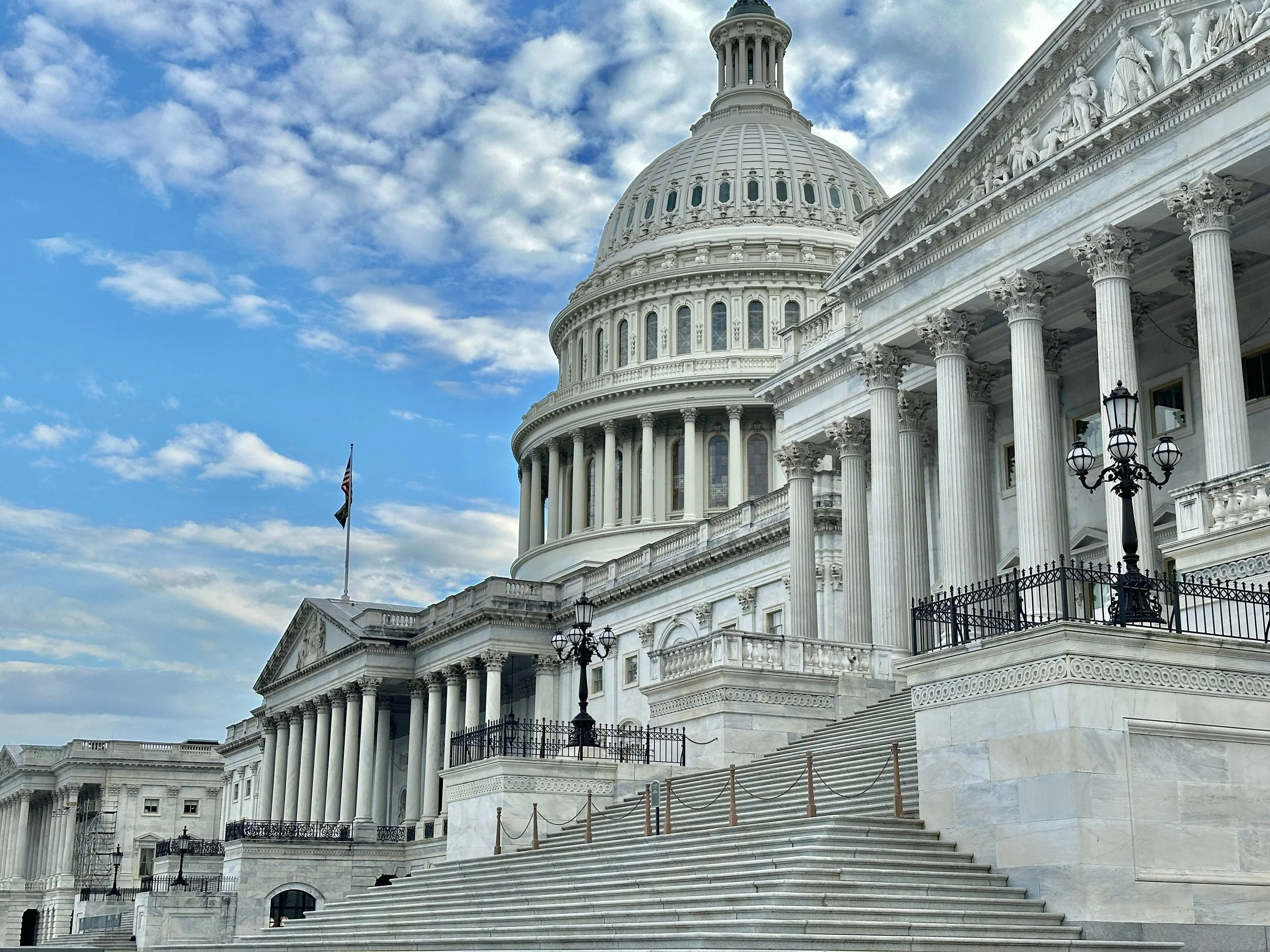House at Odds over Budget Framework as President Trump, Speaker Urge Quick Passage
House Republican leaders and President Trump are hoping to rally the caucus to support a budget framework that was passed by the Senate last week. But it could be an uphill climb, as some conservatives say the Senate version does not make enough cuts and spends too much.
The Senate approved the framework on a 51-48 vote. Senators Susan Collins (R-ME) and Rand Paul (R-KY) joined Democrats in opposing the measure.
However, Speaker Mike Johnson (R-LA) is already getting an earful from some Freedom Caucus members. Representative Ralph Norman (R-SC) said the measure is ““DEAD ON ARRIVAL” while Representative Andy Ogles (R-TN) called the framework “junk.”
Other Republicans, including Budget Committee Chairman Jodey Arrington (R-TX), say they have concerns but are keeping an open mind.
Speaker Johnson is urging speed, noting that the package will unlock President Trump’s agenda including tax cuts, which he says are even more important given the recent tariff announcements.
“The message that I’m delivering is that speed really matters, and time is not on our side,” said Speaker Johnson. “And I think that the sooner we get this done, the better.”
“THE HOUSE MUST PASS THIS BUDGET RESOLUTION, AND QUICKLY — MAKE AMERICA GREAT AGAIN!” Trump said in a post on Truth Social this weekend.
The President will meet with several House holdouts on the budget today to press for unity and their vote.
Size of Cuts at Issue
The biggest hangup is over the size of the spending cuts with the House and Senate approved frameworks miles apart.
The Senate framework calls for committees to find at least $4 billion in cuts, while the House is mandated to find at least $1.5 trillion.
“If the Senate delivers real deficit cuts in line with the House’s, I’ll support it. But with the Senate setting numbers as insulting, insincere, and low as $4 BILLION (that’s a cheeseburger, folks) compared to the House’s hard work at $2 TRILLION, I’m not holding my breath,” said Representative Scott Perry (R-PA).
Another area of contention is the Senate’s use of a budget gimmick known as current policy baseline, which assumes that the extension of the 2017 Trump tax cuts will have no impact on the deficit — despite the Congressional Budget Office estimating that it would cost around $4 trillion.
Federal Employee Cuts
The House needs to pass a framework in order to start reconciliation and advance the budget process.
Among the items that will eventually need to be reconciled: the House budget calls for $50 billion in cuts in various programs for federal workers spread out over ten years. This may include cuts in federal employee retirement and health benefits.
Many federal employee groups have been active in Congress pushing back against the proposed cuts.
“At a time when the current administration is conducting massive and indiscriminate reductions in force and attempting to eliminate – or at least greatly erode – the merit based civil service system, cuts to federal benefits would pile onto an already beleaguered and under-assault workforce, further undermining the appeal of public service on behalf of this nation,” wrote NARFE President William Shackelford in a letter detailing opposition to the cuts.


